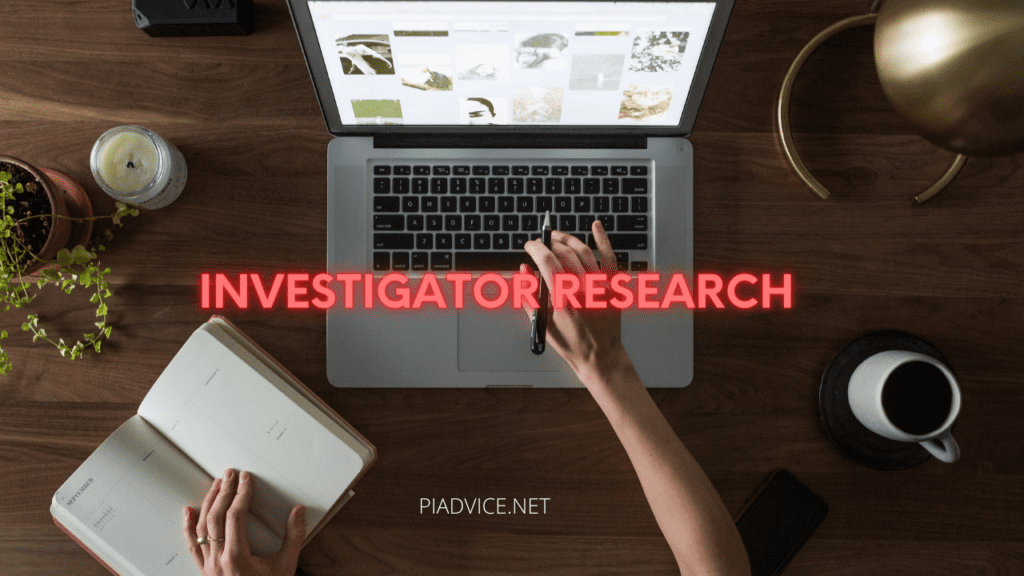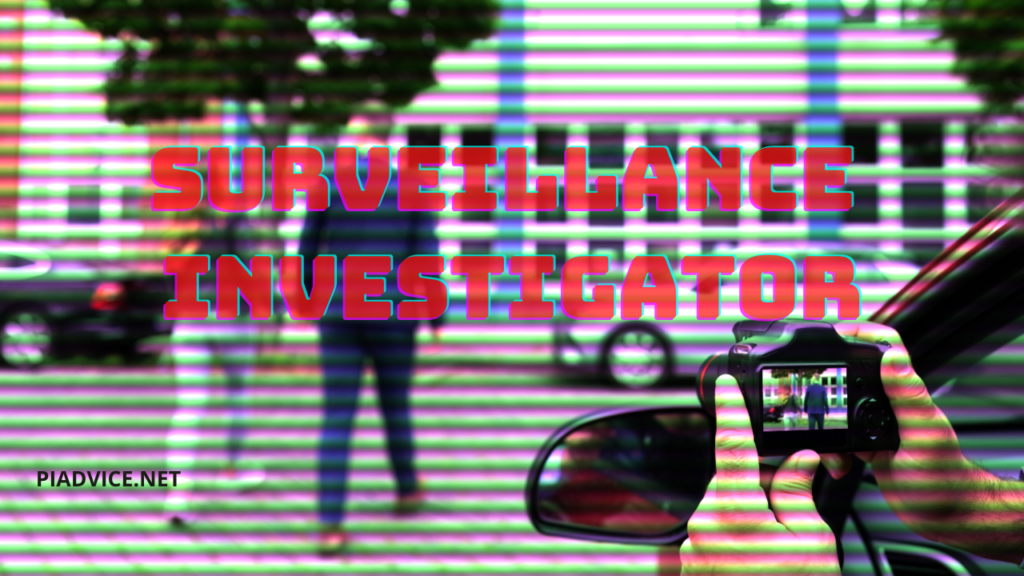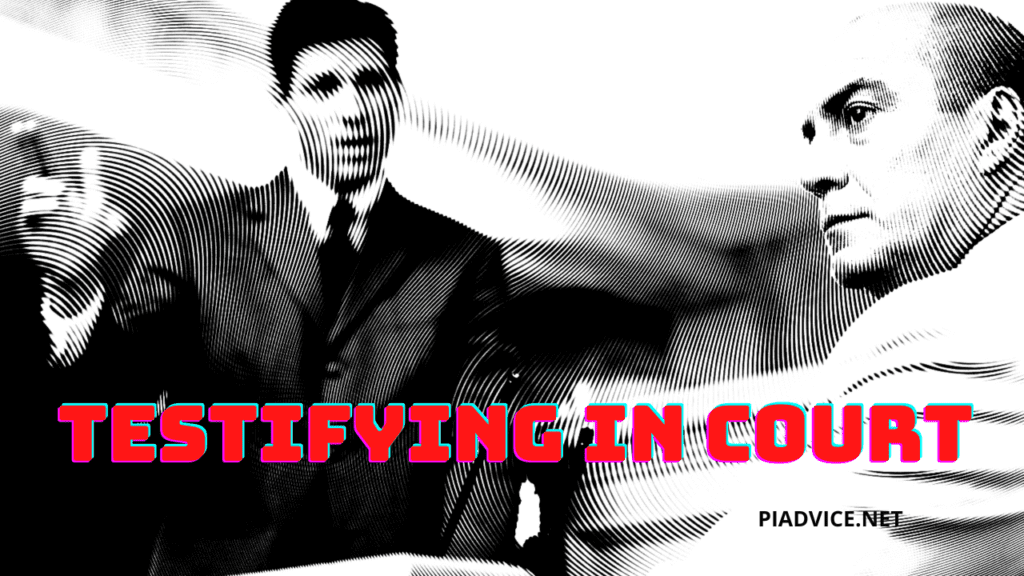Good private investigators are some of the most curious people in the world. Private investigators also like puzzles and are very good at connecting dots as it relates to information. Private investigators assist a variety of institutions including businesses, insurance companies, law enforcement, attorneys, and private clients. So with this unique particular skill set, you might ask what a private investigator’s duties are. We are going to get into that right now.
What Are the Duties of A Private Investigator? Private investigators at their core are information collectors. They find, collect and develop evidence or information and present that information to the client in an understandable manner. Here are some of the duties you might find a private investigator doing.
Private investigators at their core are information collectors.
-Andrew Kidd

Contents
- 1 Private Investigators Conduct Data and Internet Research
- 2 Conducting Interviews
- 3 Process Serving
- 4 Computer Forensics
- 5 Private Investigator Duties Include Mobile Surveillance
- 6 Court Research
- 7 Locating Individuals (Also Known as Skip Tracing)
- 8 Report Writing is a Major Duty for a Private Investigator
- 9 Surveillance Reports
- 10 Interview Reports
- 11 Undercover Investigations
- 12 Testifying in Court
- 13 These and Many More Private Investigator Duties Overlap
Private Investigators Conduct Data and Internet Research
Technology has come a long way in helping private investigators be more efficient in finding information and private investigators are taking full advantage of that technology.
Investigators will use open source and public databases and private databases to determine information like the following:
- General information on the internet (Google/Bing/DuckDuckGo) associated with the subject of an investigation.
- Private subscription-based databases for private investigators (TLO, IRB, Tracers, etc..)
- Vehicle information
- Phone numbers
- Addresses
- Known Associates
- Family Members
- Social media searches (Facebook, Instagram, Linkedin, Twitter, Pinterest)
- Court cases
- Bankruptcies information
- Vehicle information
- Professional licenses
- Business Licenses
- Voting Information
Conducting Interviews
Private investigators are hired to conduct recorded and non-recorded statement interviews with a variety of different client types. Insurance companies hire investigators to conduct recorded interviews surrounding workman compensation claims, disability claims, homeowner claims, thefts, vehicle accidents, and more.

Process Serving
Private investigators in many states are licensed to serve papers when securing their private investigation license. Sometimes private investigators are required to get licensed to do this service in addition to their private investigation license.
Computer Forensics
Many investigators pursue education in computer forensics to find information and evidence within computers that may have been deleted. This specialization is not mainstream for private investigators but highly desirable.

Private Investigator Duties Include Mobile Surveillance
One of the easiest ways to enter the private investigation career field is to start by becoming a surveillance investigator. Investigators learn the basics of investigation like the aforementioned data and internet research, following subjects while remaining undetected, report writing, learning how to legally pretext, and locating individuals.
One of the easiest ways to enter the private investigation career field is to start by becoming a surveillance investigator.
Court Research
While there is the website PACER for court case research, sometimes investigators will need to go directly to a courthouse to research and pull court records. This will require some travel and time on their court computers and possibly help from the court clerks.
Locating Individuals (Also Known as Skip Tracing)
Private investigator duties include locating people a lot! Private investigators look for witnesses, missing persons, birth parents, family members, and claimants just to name a few.
Private investigators will use the aforementioned research duties to help with locating individuals. Many duties for private investigators will overlap as they are not isolated.
If you would like to know more about skip tracing, I have written more about it here.
Report Writing is a Major Duty for a Private Investigator
Report writing is an extremely important duty for private investigators. Reporting writing will detail what work the investigator has completed.
Surveillance Reports
Surveillance reports written by private investigators will detail the efforts of the investigator during the surveillance investigation along with detailing any video documentation or activity that was relevant but no video documentation was obtained.
Surveillance reports will also contain preliminary investigation information (database research, internet searching) that the client may find relevant.
Surveillance reports will also include photos of any video documentation that was obtained which can provide context to the reader.
If you are interested in purchasing a surveillance template that also has a surveillance report example, I sell it in a bundle that can be purchased here.
Interview Reports
Private Investigators are responsible for reporting writing as it relates to interviews that are conducted. In the insurance investigation industry, private investigators will record the interviews they conduct and they will write the answers the claimant gives during the interview. This process can take quite a bit of time as investigators will have to listen to the recording to insure that the report that they are writing is accurate.
The reports that investigators write have to be well written because they will be used in many instances as evidence in court.
Undercover Investigations
Private investigation duties include undercover investigations. Sometimes this can relate to a variety of things but essentially investigators will present themselves as something they are not to observe, videotape, and investigate something that would not be possible otherwise.
In one specific instance, an investigator needed to determine if the owner of a dentist’s office was actually working as a dentist. This particular dentist indicated he was disabled and couldn’t perform dentistry duties any longer. The investigator under a false name made an appointment for a cleaning and paid cash (so as to not have it traced back to him) upon arrival.
The investigator’s teeth cleaning was performed and while the dentist in question did not work on the investigator’s mouth, the investigator videotaped him intermittently working with patients while he was there.
While this specific example can seem pretty simple, a private investigator works this way quite a bit when working surveillance but in a more passive way. Generally speaking, private investigators don’t advertise who they are or what they are doing. A pretext is conducted to conceal the investigator’s identity or true reason for being in certain areas during surveillance.

Testifying in Court
Private investigators have to testify in court. This duty for Investigators typically happens months or years in some cases after conducting investigative efforts, especially as it relates to surveillance assignments.
Investigators will confer with the client and the attorneys representing the court case prior to the actual day of court to prepare. Investigators will review case material and in particular their own investigation reports and video documentation.
These and Many More Private Investigator Duties Overlap
The aforementioned Investigator duties overlap with different types of investigations. But fundamentally, these are the core duties a private investigator is responsible for. If you are interested in how to become a private investigator I have written about that extensively here.

Recent Posts
Hawaii is probably one of the most interesting states to work as a private investigator if you are not used to the culture or a native of the state. And if you are not a local, that is something...
How to become a private investigator in Georgia

